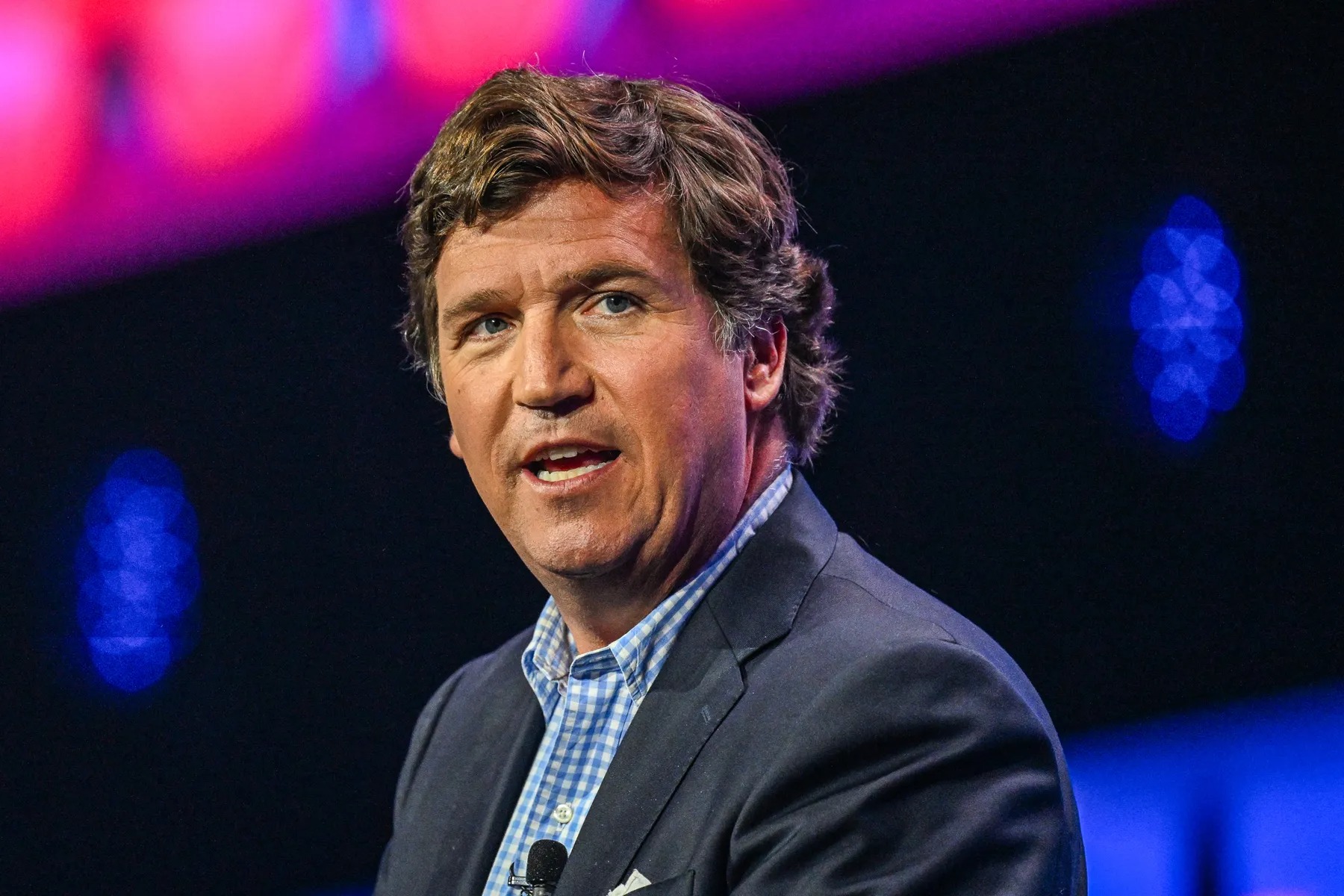In an orchestrated and extensive interview released on Thursday, former Fox News host and polarizing conservative political commentator Tucker Carlson became the first Western media figure to interview President Vladimir Putin since Russia’s invasion of Ukraine nearly two years ago.
The interview, carefully stage-managed, was made available on Carlson’s personal website and shared on his social media accounts, presenting an intriguing conversation that unfolded in a lavishly adorned hall at the Kremlin palace in Moscow.
Touching on various topics, the interview encompassed discussions on the war in Ukraine, President Joe Biden, the fate of detained Wall Street Journal reporter Evan Gershkovich, and Elon Musk.

Despite the anticipation, the interview did not reveal groundbreaking insights, and Carlson’s history of disseminating misinformation and endorsing conspiracy theories further colored the narrative. Notably, he has consistently criticized Ukraine.
When questioned by Carlson about the possibility of peace in Ukraine, Putin suggested that stopping the supply of weapons, particularly from the West, would be the key to ending the conflict quickly.
He asserted, “If you really want to stop fighting, you need to stop supplying weapons. It will be over within a few weeks. That’s it.” Putin expressed a lack of interest in reaching out to President Biden, with whom he has not communicated since before the invasion.
Biden has maintained his stance of not engaging in talks with the Russian leader unless genuine conditions for a peace agreement are presented.
Putin’s responses regarding the Ukraine conflict seemed to align with the rhetoric of former U.S. President Donald Trump, with whom he claimed to have had a positive relationship. Putin urged the U.S. to “make an agreement” to conclude the war, suggesting that it might involve Ukraine ceding territory to Russia.
This echoes Trump’s promise at a New Hampshire rally last month, where he declared his intention to resolve the war swiftly upon assuming the presidency, without providing a detailed plan for achieving this goal.
The timing of the interview coincides with a perceived shift in momentum on the battlefield, favoring Russia, while the prospect of additional U.S. aid for Ukraine remains uncertain in Congress.
Despite polls indicating that a majority of Americans support the U.S. assisting Ukraine, concerns persist about potential overcommitment at the expense of domestic priorities. Republicans, in particular, exhibit greater skepticism than Democrats regarding the utility of providing further wartime aid to Ukraine.
In the complex geopolitical landscape, the Carlson-Putin interview adds a layer of intrigue and raises questions about the dynamics between Western media figures and influential global leaders, highlighting the intersection of politics, media, and international relations in an era of heightened tension and conflict.


